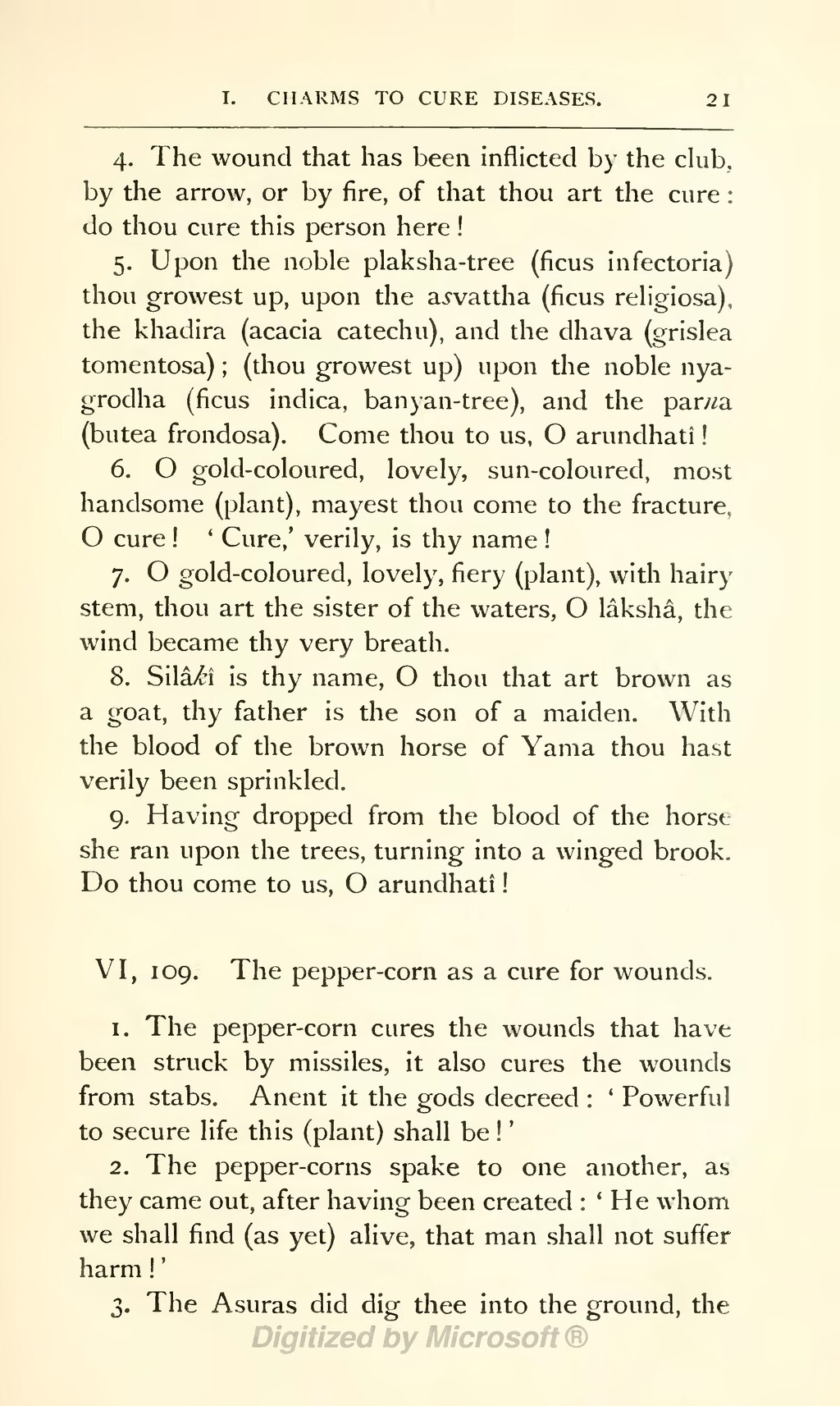4. The wound that has been inflicted by the club, by the arrow, or by fire, of that thou art the cure: do thou cure this person here!
5. Upon the noble plaksha-tree (ficus infectoria) thou growest up, upon the asvattha (ficus religiosa), the khadira (acacia catechu), and the dhava (grislea tomentosa); (thou growest up) upon the noble nyagrodha (ficus indica, banyan-tree), and the parna (butea frondosa). Come thou to us, O arundhatî!
6. O gold-coloured, lovely, sun-coloured, most handsome (plant), mayest thou come to the fracture, O cure! 'Cure,' verily, is thy name!
7. O gold-coloured, lovely, fiery (plant), with hairy stem, thou art the sister of the waters, O lâkshâ, the wind became thy very breath.
8. Silâkî is thy name, O thou that art brown as a goat, thy father is the son of a maiden. With the blood of the brown horse of Yama thou hast verily been sprinkled.
9. Having dropped from the blood of the horse she ran upon the trees, turning into a winged brook. Do thou come to us, O arundhatî!
VI, 109. The pepper-corn as a cure for wounds.
1. The pepper-corn cures the wounds that have been struck by missiles, it also cures the wounds from stabs. Anent it the gods decreed: 'Powerful to secure life this (plant) shall be!'
2. The pepper-corns spake to one another, as they came out, after having been created: 'He whom we shall find (as yet) alive, that man shall not suffer harm!'
3. The Asuras did dig thee into the ground, the
